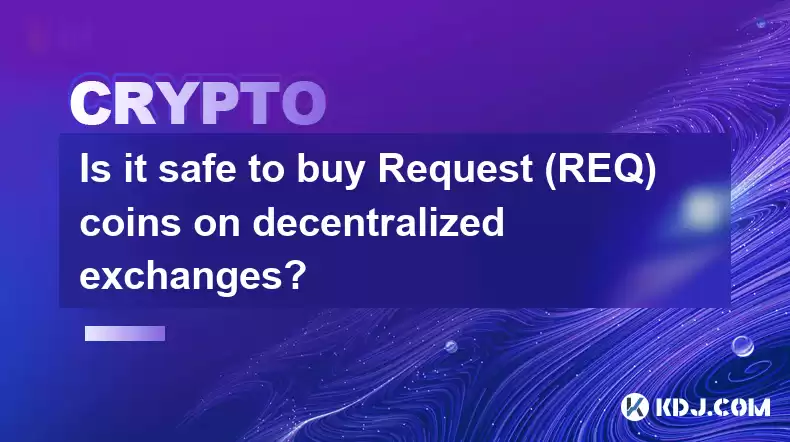-
 Bitcoin
Bitcoin $120100
1.16% -
 Ethereum
Ethereum $4329
2.25% -
 XRP
XRP $3.192
-0.22% -
 Tether USDt
Tether USDt $1.000
-0.01% -
 BNB
BNB $805.2
0.47% -
 Solana
Solana $178.7
-1.85% -
 USDC
USDC $0.9998
0.00% -
 Dogecoin
Dogecoin $0.2305
-1.62% -
 TRON
TRON $0.3445
1.17% -
 Cardano
Cardano $0.7940
-1.28% -
 Hyperliquid
Hyperliquid $44.44
-1.20% -
 Chainlink
Chainlink $21.86
-2.42% -
 Stellar
Stellar $0.4423
-0.15% -
 Sui
Sui $3.728
-3.84% -
 Bitcoin Cash
Bitcoin Cash $584.8
2.19% -
 Hedera
Hedera $0.2524
-2.87% -
 Ethena USDe
Ethena USDe $1.001
-0.02% -
 Avalanche
Avalanche $23.66
-0.78% -
 Litecoin
Litecoin $124.5
0.39% -
 Toncoin
Toncoin $3.399
1.77% -
 UNUS SED LEO
UNUS SED LEO $9.002
-0.44% -
 Shiba Inu
Shiba Inu $0.00001327
-2.10% -
 Uniswap
Uniswap $11.42
2.58% -
 Polkadot
Polkadot $3.957
-2.50% -
 Cronos
Cronos $0.1696
4.50% -
 Dai
Dai $1.000
0.00% -
 Ethena
Ethena $0.8139
3.04% -
 Bitget Token
Bitget Token $4.442
-0.38% -
 Monero
Monero $271.2
2.93% -
 Pepe
Pepe $0.00001168
-2.91%
Is it safe to buy Request (REQ) coins on decentralized exchanges?
When evaluating the safety of buying REQ coins on DEXs, consider factors such as low liquidity, counterparty risk, and the use of reputable platforms with strong security measures like Uniswap, PancakeSwap, or SushiSwap.
Dec 25, 2024 at 09:36 am

Key Points:
- Understanding decentralized exchanges (DEXs)
- Evaluating security measures on DEXs
- Identifying risks associated with DEXs
- Determining the safety of buying REQ coins on DEXs
Content:
1. Understanding Decentralized Exchanges (DEXs)
DEXs are peer-to-peer marketplaces where users can trade cryptocurrencies directly with each other, without the need for a centralized intermediary like a traditional cryptocurrency exchange. Instead, DEXs rely on smart contracts to facilitate transactions and manage liquidity.
Unlike centralized exchanges, DEXs offer several advantages, including:
- Non-custodial: Users retain full control over their private keys, eliminating the risk of asset confiscation or theft.
- Permissionless: Anyone can access and use a DEX without the need for verification or approval.
- Transparent: All transactions are recorded on the blockchain, providing a high level of transparency and visibility.
2. Evaluating Security Measures on DEXs
While DEXs offer significant advantages, they also present potential security risks that must be considered:
- Smart contract vulnerabilities: DEXs rely on smart contracts, which can be susceptible to vulnerabilities and exploits.
- Rug pulls: Scammers may create fraudulent DEXs or launch tokens with the sole purpose of draining liquidity from unsuspecting users.
- Liquidity risks: DEXs may have limited liquidity for certain assets, which can make it difficult to execute large trades or during periods of market volatility.
To mitigate these risks, it is crucial to evaluate the security measures implemented by specific DEXs before using them. Factors to consider include:
- Security audits: Reputable DEXs will undergo security audits by third-party cybersecurity firms to identify potential vulnerabilities.
- Team transparency: The team behind a DEX should be transparent about their expertise and motivations.
- Reputation: Consider the overall reputation of the DEX within the cryptocurrency community.
3. Identifying Risks Associated with Buying REQ Coins on DEXs
REQ is a cryptocurrency used for decentralized application development and request-based payments. While REQ coins can be purchased on both centralized and decentralized exchanges, there are specific risks associated with buying REQ on DEXs:
- Low liquidity: REQ is not a widely traded asset on DEXs, which can make it difficult to execute large trades or obtain optimal pricing.
- Counterparty risk: When trading on a DEX, you are directly transacting with another user. It is important to ensure the trustworthiness of the counterparty before finalizing a trade.
- Slippage: Due to limited liquidity, REQ prices on DEXs may experience significant fluctuations during large or rapid trades, leading to slippage.
4. Determining the Safety of Buying REQ Coins on DEXs
Given the potential risks discussed, it is essential to proceed with caution when buying REQ coins on DEXs. To enhance safety, follow these guidelines:
- Use reputable DEXs with strong security measures, such as Uniswap, PancakeSwap, or SushiSwap.
- Thoroughly research the REQ project and team to ensure legitimacy.
- Exercise due diligence when selecting a trading partner, especially for large or critical trades.
- Be aware of the potential for low liquidity and slippage, and adjust your trading strategy accordingly.
FAQs:
Q: What are the most popular DEXs for buying REQ?
A: Uniswap, PancakeSwap, and SushiSwap are among the most popular DEXs for trading REQ coins.
Q: How can I verify the security of a DEX?
A: Look for independent security audits, transparency about the team, and a positive reputation within the cryptocurrency community.
Q: What are the main risks associated with buying REQ on DEXs?
A: Low liquidity, counterparty risk, and slippage are among the primary risks to consider.
Q: Is it possible to buy REQ coins without using a DEX?
A: Yes, REQ can also be purchased on centralized cryptocurrency exchanges such as Binance and Coinbase.
Q: What are some tips for safely buying REQ on DEXs?
A: Choose reputable DEXs, research the project, verify the counterparty's trustworthiness, and be aware of the potential risks involved.
Disclaimer:info@kdj.com
The information provided is not trading advice. kdj.com does not assume any responsibility for any investments made based on the information provided in this article. Cryptocurrencies are highly volatile and it is highly recommended that you invest with caution after thorough research!
If you believe that the content used on this website infringes your copyright, please contact us immediately (info@kdj.com) and we will delete it promptly.
- Bitcoin, Solana, MAGACOIN FINANCE: Navigating the 2025 Crypto Landscape
- 2025-08-12 00:30:13
- Cardano, ADA Holders, and Layer Brett: A Meme Coin with Real Utility?
- 2025-08-12 00:50:12
- Bitcoin, Michael Saylor, and Savvy Investors: A New Era of Digital Assets
- 2025-08-12 00:30:13
- Crypto Presales in 2025: Spotting the Next Big Thing with Analyst Insights
- 2025-08-12 00:50:12
- Cloud Mining in 2025: Bitcoin, Litecoin, and the Quest for Passive Income
- 2025-08-12 00:55:32
- Token Security, Agentic AI, Cybersecurity Guide: Navigating the New Frontier
- 2025-08-11 23:00:12
Related knowledge

How to purchase Aragon (ANT)?
Aug 09,2025 at 11:56pm
Understanding Aragon (ANT) and Its PurposeAragon (ANT) is a decentralized governance token that powers the Aragon Network, a platform built on the Eth...

Where to trade Band Protocol (BAND)?
Aug 10,2025 at 11:36pm
Understanding the Role of Private Keys in Cryptocurrency WalletsIn the world of cryptocurrency, a private key is one of the most critical components o...

What is the most secure way to buy Ocean Protocol (OCEAN)?
Aug 10,2025 at 01:01pm
Understanding Ocean Protocol (OCEAN) and Its EcosystemOcean Protocol (OCEAN) is a decentralized data exchange platform built on blockchain technology,...

Where can I buy UMA (UMA)?
Aug 07,2025 at 06:42pm
Understanding UMA and Its Role in Decentralized FinanceUMA (Universal Market Access) is an Ethereum-based decentralized finance (DeFi) protocol design...

How to buy Storj (STORJ) tokens?
Aug 09,2025 at 07:28am
Understanding Storj (STORJ) and Its Role in Decentralized StorageStorj is a decentralized cloud storage platform that leverages blockchain technology ...

Where to find the best price for Audius (AUDIO)?
Aug 11,2025 at 04:01pm
Understanding the Basics of Ethereum StakingEthereum staking refers to the process of locking up ETH tokens to support the security and operations of ...

How to purchase Aragon (ANT)?
Aug 09,2025 at 11:56pm
Understanding Aragon (ANT) and Its PurposeAragon (ANT) is a decentralized governance token that powers the Aragon Network, a platform built on the Eth...

Where to trade Band Protocol (BAND)?
Aug 10,2025 at 11:36pm
Understanding the Role of Private Keys in Cryptocurrency WalletsIn the world of cryptocurrency, a private key is one of the most critical components o...

What is the most secure way to buy Ocean Protocol (OCEAN)?
Aug 10,2025 at 01:01pm
Understanding Ocean Protocol (OCEAN) and Its EcosystemOcean Protocol (OCEAN) is a decentralized data exchange platform built on blockchain technology,...

Where can I buy UMA (UMA)?
Aug 07,2025 at 06:42pm
Understanding UMA and Its Role in Decentralized FinanceUMA (Universal Market Access) is an Ethereum-based decentralized finance (DeFi) protocol design...

How to buy Storj (STORJ) tokens?
Aug 09,2025 at 07:28am
Understanding Storj (STORJ) and Its Role in Decentralized StorageStorj is a decentralized cloud storage platform that leverages blockchain technology ...

Where to find the best price for Audius (AUDIO)?
Aug 11,2025 at 04:01pm
Understanding the Basics of Ethereum StakingEthereum staking refers to the process of locking up ETH tokens to support the security and operations of ...
See all articles

























































































